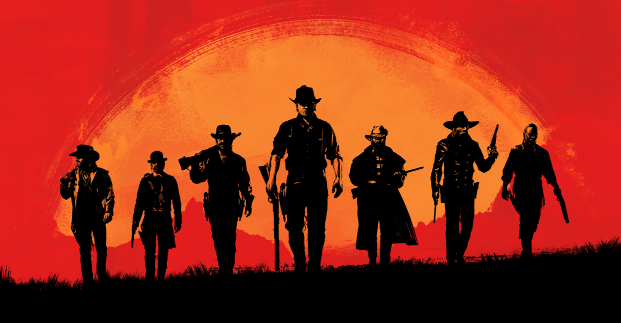
There was a time, not all that long ago, when movies based on videogames were surefire losers. The reasons varied, but the bottom line was the same: It just never worked out. In more recent times, though, that situation has turned around dramatically: The Super Mario Bros. Movie is a major hit, while The Last of Us—an HBO series rather than a film, but close enough—earned universal critical and commercial acclaim.
In light of that, you might think that Take-Two Interactive—home to game series including Red Dead Redemption, Grand Theft Auto, XCOM, Mafia, Midnight Club, and Max Payne, all rife with cinematic potential—might harbor some movie-making ambitions of its own. But during today's quarterly investors call, CEO Strauss Zelnick—who actually served as CEO of 20th Century Fox back in the early '90s—said that's actually not the case at all because film and television projects are too risky for the "relatively small [economic] opportunity" they represent.
Zelnick said the runaway (and, I would say, somewhat surprising) success of the Super Mario Bros. Movie and The Last of Us indirectly highlights the fact that "there are many, many failures where money was lost." Take-Two does currently have a pair of game-based films in the works, Borderlands and BioShock, and Zelnick said it's possible that more such projects could happen in the future. But he said that the company will continue to take "a very selective approach to licensing," and will only do so "where there's a creative imperative and an economic opportunity."
There have been other recent videogame-to-video success stories in recent years, including Arcane, Cyberpunk: Edgerunners, The Witcher, and Halo, all of which have earned positive receptions and relatively wide audiences. It's quite a turnaround from the days of Jean Claude van Damme and Raul Julia throwing hands, or anything Uwe Boll ever did, and Zelnick attributed it to two things: Great source material, and great adaptations to non-interactive screens—something that really didn't happen in the past.
One notorious example of that is Max Payne, which hit theaters in 2008, just a year after Zelnick took control of Take-Two. It was not good—it currently holds a 16% aggregate rating on Rotten Tomatoes—and while it wasn't a huge box office bust, it didn't make a whole pile of money either, nor did it do anything to improve the reputation of the game series.
The pain of that failure may have faded over the years, but Take-Two's more recent Borderlands film project isn't exactly inspiring confidence either: Two years after the end of shooting, it's still a full year away, and co-writer Craig Mazin recently removed his name from the project. That's not a good sign, and it may be part of why Zelnick isn't eager to jump into the film industry with both feet just yet.
"It's a really hard business, and we're not going to bet this company's future, or the value of our intellectual property, based on someone else's execution in another area of the entertainment business," Zelnick said. "So we'll continue to be very selective indeed."







